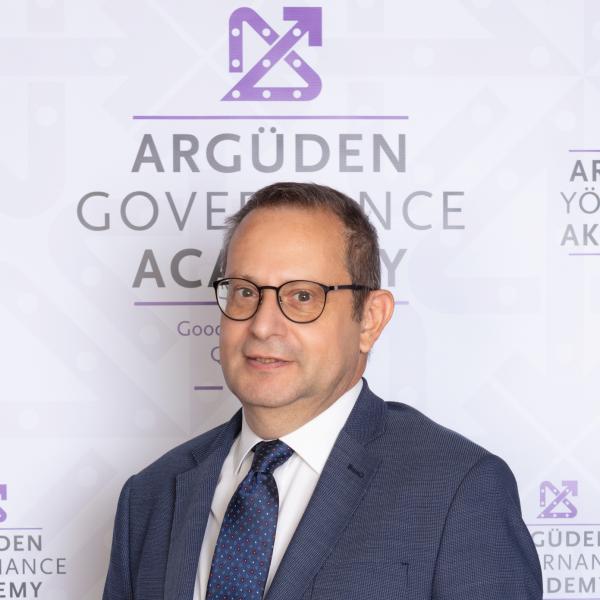Tackling global inequality in a world impacted by COVID and climate change: Lessons from Peterloo and Black Lives Matter
“A riot is the language of the unheard.” Martin Luther King
“A riot is the language of the unheard.” Martin Luther King
In our latest blog, we argued how systemic issues such as climate change and biodiversity loss must not be looked at in isolation but together as, in our highly interconnected world, many issues such as these are heavily interconnected. In this article, we aim to explore connections between environmental issues and systemic social concerns that are also prevalent in our society. In this context, we will also explore why it is important for all of us to prioritize reducing inequality in our societies and introducing more human rights-centered policies into our institutions.
We live our lives amidst major global changes and inequalities. It is these circumstances that largely determine how healthy, wealthy and educated each of us will be in our own lives. Clearly, working hard and our life choices also matter but these matter much less than where and when we were born. Giving just one example, in terms of health inequality, a child born in some of the poorest countries is 60-times more likely to die than a child born in many developed countries. There are African countries where more than one out of every 10 children born today are expected to die before they are 5 years old. Conversely, in developed countries, only 1 in 250 children die before they are 5 years old.[1]
With globalization in recent decades, billions have been lifted out of poverty, especially in emerging countries like China and India. Basic services like health care, education, and sanitation have also improved. However, while there has been great progress in moving billions out of poverty and in the creation of a burgeoning middle class in developing economies, it is also true that the gulf between the extremely wealthy and the rest has been increasing. An Oxfam report published in 2020 found that the world’s 2,153 billionaires had more wealth than the 4.6 billion people who make up 60 % of the planet’s population and also estimated that women and girls put in 12.5 billion hours of unpaid care work on a daily basis, contributing at least $10.8 trillion a year to the global economy, more than 3 times the size of the global tech industry. Their unpaid work helps maintain and drive our economies, businesses and societies but the unpaid work is done by women and girls who often have little time or opportunity to get an education, earn a decent living or have a say in how our societies are run. Hence, many are amongst the most vulnerable in our societies.[2]
We have a moral responsibility to even the odds and give everyone, everywhere, the chance of a good life.
While climate change is an urgent and global issue that transcends any borders, it is also true that we must also urgently tackle inequalities and human rights abuses. Many inequalities are at risk of being exacerbated by climate change whereby many of the most vulnerable people and those that have contributed least to the problem are most at risk.
As an example, most of the poorest countries in the world lie in the tropics where temperature increases due to global warming may make areas uninhabitable, forcing millions of people to abandon their homes. Mass immigration on this scale would pose major geopolitical risks directly impacting stability and peace across the world.
Conversely, in the global ‘North’, in the early years of global warming, some areas may benefit from global warming as agricultural productivity may increase.
In a similar vein, in terms of biodiversity, the areas with highest biodiversity are in the tropics. In these regions, many millions of people rely directly on nature, working in areas such as agriculture, fishing and ecotourism and hence nature loss can directly impact their livelihoods. In the developed ‘north’, where proportionately many more people work in services, biodiversity risks may be more indirect, for example due to negative impacts on supply chains from sourcing key materials from the emerging market countries.
Indeed, COVID has underscored how in our highly interconnected planetary system we are all vulnerable to supply chain disruption and nature-based risks. As discussed in a previous blog COVID, is a public health crisis that has also spurred an economic and confidence crisis. The pandemic has highlighted how people in different parts of the world have been affected very differently by the very same pandemic. Simply put, COVID-19 is not an equal opportunity virus: the most at risk are those in poor health, those unable to work remotely and those whose daily lives expose them to greater contact with others. In short, it disproportionately affects the poor in poor countries and communities in need within advanced economies like the United States where access to health care is not guaranteed.
Even now that there is a vaccine that is starting to be rolled out, it is unlikely the vaccine will be widely available in all places in the immediate future, risking exacerbating inequalities such as between rich and poor countries.
In tacking inequalities, we need a human rights-based agenda that sets out to illustrate how human rights can provide both a normative framework and a set of accountability mechanisms to accelerate success in finding proper solutions. Maybe to understand this concept, we first need to look at moments in history that had a direct impact on the development of some of those human rights.
One example is the initial declaration of rights by the Founding Fathers of the United States. It was revolutionary in its vision at a time when most people lived in empires governed by absolutist monarchies. According to the declaration: “All men are created equal, that they are endowed by their Creator with certain unalienable Rights, that among these are Life, Liberty and the pursuit of Happiness."
Yet most of the Founding fathers were also slave-owners and black Americans had to wait a long time before it was widely accepted that they too had the same unalienable rights. Women had to wait until the 20th century for equal suffrage… Gay rights came even later…
We hold these truths of how we are all created equal to be self-evident, however universal rights were not actually made universally available and many groups had to fight hard, and are still fighting, for rights and recognition...
Many historical examples can be cited of how protest played a significant role in bringing change and social progress and by shining a light on injustice. Often those protesting were initially portrayed as looters or criminals by those in power so to discredit their cause and maintain the status quo. An example from 2020 has been the mass protests that followed the death of George Floyd in the US where protests against police brutality, especially toward black people, quickly spread across the United States and internationally with an estimated 15 million to 26 million protesters in the United States alone3. Certainly, there were some leaders who had been raising their voice in support of this movement many years before there was a public outcry on the scale witnessed in 2020.
Subsequent to a global outcry, many global firms have come out in public for support the ‘Black Lives Matter’ movement and published new or revised Black Lives action plans as well as giving renewed focus to stronger diversity and inclusion. In 2020, KPMG published a revised Black Lives action plan to help accelerate change and announced 5 priority areas. [3]
A famous example from the UK is what is known today as the Peterloo Massacre, which took place in Manchester in 1819. After over 60,000 peaceful pro-democracy and anti-poverty protesters had assembled, the UK Government sent the army in to break up the protests. An estimated 18 people died and nearly 700 men, women and children received serious injuries. However, the incident shone a light on the plight of the factory workers. There was a national outcry. This ultimately led to change in helping ordinary people win the right to vote, to the rise of the Chartist Movement from which the Trade Unions arose, and in the establishment of the progressive Manchester Guardian newspaper, which is widely read today in the UK and internationally.
Another recent example, climate protests, led by the likes of Greta Thunberg, have raised much awareness globally regarding the climate crisis. In sum, peaceful protests are of fundamental importance to democracy and the historical record is replete with examples as to how they helped drive and accelerate change by shining a light on injustices.
One way of achieving human rights –as history shows– is peaceful protests. Another way is for everyone in society to do their part. During the peaceful protests in the US there were many lawyers’ associations that dedicated themselves to helping the protesters. Protesters needing legal support after having been in peaceful protests received free of charge consultation and support from lawyers.[4]
The financial industry, indeed, all industries, also has a role to play in helping to tackle and reduce inequalities. For example, financial institutions and investors can divest from any assets they consider as having high ESG risks or that are not consistent with their ethical policies or beliefs. High-profile recent examples include divestment from fossil fuels, munitions, tobacco and palm oil producers. In terms of human rights, another example could include not investing in private detention centers where individuals are kept based on unethical immigration policies or on peaceful protesting.[5] As an example, MSCI ESG indices already have exclusions in all the above-mentioned investment categories.
NGOs also have a key role to play, such as by building a liaison between private and government institutions and by initiating partnerships. For example, the NGO United Way Greater Toronto from Canada has the objective of finding ways to address issues at the heart of income disparity between neighbourhoods by developing sustainable and scalable tactics and frameworks that corporations, governments and community groups can use to tackle these issues together. Over the past year, United Way Greater Toronto and BMO have convened a group of local business leaders to form public-private partnership.[6]
Inclusive growth is critical for eliminating inequalities in society. Inclusive growth is about creating broader opportunities for participation in economic and social life. The quality of inclusive growth could be affected by political freedoms, as stated above for right to protest, and social opportunities such as education and health. The role of institutions in supporting inclusive growth and the implementation of inclusive policies are important. Acemoglu and Robinson found in their research that the institutions relevant for economic development have an inclusive effect.[7] To achieve inclusive growth, çivil society needs to be strong enough to monitor and oversee the actions of the state. If these two forces are in a fairly balanced state also it also helps strengthen the rule of law and democracy in society. The rule of law and democracy are two enablers of inclusiveness and inclusive growth.
Insufficient progress on SDG 16 “Peace, Justice and Strong Institutions” and SDG 10 “Reduced Inequalities” by global corporations was also highlighted by an impact research called “Sustainability Governance Scorecard” by Argüden Governance Academy, which evaluates companies through a governance lens. According to the study, corporations’ strategy and results alignment were low for SDG 16 (29%, 24%) and SDG 10 (37%, 33%).
CONCLUSION
Reducing inequality is important for enabling markets to function effectively. If income distribution is skewed, consumption may not be sufficient for some industries or companies to operate due to a lack of demand, which will reduce competitiveness.
When inequality increases, there is a risk people will become disenfranchised and lose trust in institutions. Government, private sector and civil society all need to cooperate to help build an inclusive and “equal” society.
Company boards and investors also have responsibilities for helping to achieve these goals. Boards need to define company values in such a way that inclusiveness and reducing inequality become part of a company’s DNA. The private sector and government need to encourage each other to take measures supporting inclusive and just societies and building strong institutions.
The pandemic has underlined how inequality is a global problem that needs to be urgently addressed to help enable a more sustainable and inclusive future. In our highly interconnected world, effective solutions to systemic social and environmental issues can so often be found by tackling them not in isolation but together.
SUPPLEMENTARY SECTION:
INITIATIVES BY GLOBAL EXCHANGES ON SOCIAL ISSUES
A number of global exchanges are pushing for ESG integration for social issues through general policies, guidelines and ratings. B3, Colombia Securities Exchange and National Stock Exchange of India guides its listed companies through a sustainability index questionnaire, which also includes social topics. In a similar fashion, JSE’s Responsible Investment Index also includes social issues in its ESG ratings.
JSE had a dedicated segment for green bonds, which in 2020 became the Sustainability Segment and expanded to include “social bonds” and “sustainability bonds.
At the Colombian Securities Exchange (bvc Group) despite the pandemic, they fostered the CSR plan on IT & Innovation scholarships by supporting 101 low-income students. In addition, bvc Group became in solidarity with the people affected by the pandemic by donating PCR tests and the enhancing ICUs capacity in mid-size cities in Colombia.
Regarding employees, bvc Group has total parity in its labor force since 2019, 50% women 50% men. 97% of our employees have indefinite employment contracts and no changes in labor conditions during the pandemic, 100% of our employees are in home office schemes. bvc Group enhanced its rating on Great Place to Work from favorable to very satisfactory. Also, the group achieved the “Family Responsible Company” certification granted by efr from Spain. And, finally bvc Group has maintained the 35 days payment policy to suppliers in order to help them in their cash flow.
Since becoming a member of the Sustainable Stock Exchanges Initiative, Nairobi Securities Exchange has been promoting the SDG's amongst its listed companies. In 2017 the Exchange conducted research on diversity & inclusion with a particular focus on gender equality, where questionnaires were sent out to publicly listed companies and a detailed report published thereafter. Consequently, Nairobi Securities Exchange started the NSE Leadership and Diversity Program which intends to increase diversity of listed public companies, especially at board and senior management level. In the related forums, listed companies were encouraged to sign commitment letters, where they agreed to have a minimum of 30% women representation at the board level. Finally, the Exchange partnered with Equileap to share insights and data to compare listed companies at Nairobi Securities Exchange with global trends. Even though the focus of the diversity program has initially started off with gender inequality, it moved on to reducing inequalities related to age, disability etc as well.
The Nigerian Stock Exchange will collaborate with the Principles for Responsible Investment to host a webinar on responsible investing and Economic, Social, and Governance integration.
Singapore Exchange (SGX) said it is strengthening its sustainability capabilities and initiatives with a S$20 million (US$15 million) investment plan.
UN Global Compact Network Poland (GCNP) and the Warsaw Stock Exchange (GPW) have signed a Memorandum of Understanding (MoU) in support of sustainable development financing tools.
The Stock Exchange of Hong Kong Limited published the findings of its latest review of issuers’ corporate governance practices and market practitioners’ insights entitled “Making inroads into good Corporate Governance and ESG management”.
Additional contributors:
Thank you to Carlos Barrios, Tirthankar Patneik, Shameela Soobramoney, Waithera Mwai-Ireri for exchange insight and to Mohan Prabhu Kumar & Gamze Talay for research and design support.
[1] https://ourworldindata.org/global-economic-inequality
[2] https://www.oxfam.org/en/press-releases/worlds-billionaires-have-more-wealth-46-billion-people
[3] https://www.nytimes.com/interactive/2020/07/03/us/george-floyd-protests-crowd-size.html
[4] ttps://www.fox5atlanta.com/news/more-than-200-lawyers-offering-to-represent-protesters-free-of-charge/ https://www.law.com/texaslawyer/2020/06/03/texas-lawyers-offer-free-help-to-people-arrested-during-protests-
[5] https://uk.reuters.com/article/usa-immigration/bank-of-america-to-stop-financing-operators-of-private-prisons-detention-centers-idUSL2N23X1JL
[6] https://www.weforum.org/agenda/2020/01/ngos-business-inclusive-economic-growth/
[7] D. Acemoglu, J. Robinson: Why Nations Fail: The Origins of Power, Prosperity and Poverty, New York 2012. And Narrow Corridor, Newyork 2019

Academic Council Member

Sustainability Researcher

KPMG
Sustainability Director